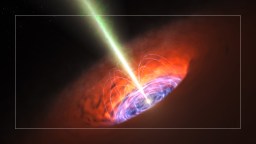A very few creative individuals, often labeled “geniuses,” have had a profound and lasting impact on science, culture, and society. Sure, we admire the achievements and legacy of this lofty few, but it’s a puzzle to determine what, precisely, launched these specific innovators into the stratosphere.
The simplest answer is that the root of genius is raw ability. Yet, decades of research indicate otherwise. As network scientist Albert-László Barabási tells us, exceptional talent or intellectual prowess is no guarantee of exceptional achievement. And exceptional achievement is, in turn, no guarantee of recognition. Even a significant breakthrough doesn’t ensure that an individual ultimately will be labeled a genius.
So what truly makes a genius? And what separates ordinary geniuses — those who have accomplished remarkable feats and are often compared to their peers, like Stephen Hawking — from peerless geniuses, who are considered alone in the significance of their achievements, such as Albert Einstein? Working with Alexander Gates and Qing Ke at the Network Science Institute at Northeastern University, Barabási catalogued the publishing history of nearly six million scientists to answer these questions. And the data they gleaned might just predict which genius will be our generation’s Einstein.
Albert-László Barabási: We live in a society where we learn to admire geniuses: We write about them. We read about them. We watch movies about them. And in general, the genius label sells. Typically, everyone whom we label today "genius" has accomplished something remarkable by really standing out from among their peers in a way that really grabs our attention. They include scientists like Einstein, musicians and composers like Beethoven and Mozart. But genius is something more: it's a story. We remember the people who happened to be at the right time at the right place, and hence, there was a way of recording their accomplishments. There are an exceptional number of hidden geniuses who either have not been at all recorded for posterity, or we know about their accomplishments, but we don't know enough for them to enter the canon. Could we actually use data to predict who among the scientists will actually be a genius? That's where network science comes in.
So we are curious: What really determines the genius label? And when we compared all geniuses to their scientific peers, we realized that there are really two very different classes: Ordinary genius and peerless genius. For example, Einstein, who turns out to be a truly peerless genius. When we looked at the scientist working at the same time or roughly in the same areas of physics that he did, there was no one who would have a comparable productivity or scientific impact to him. He was truly alone. When we look at Stephen Hawking, we label him an ordinary genius. To our surprise, we realized there were about six other scientists who work in roughly the same area, and had comparable, often bigger impact than Stephen Hawking had. Among them, actually, is a woman scientist, Renata Kallosh. And it turned out that there was absolutely no news about her anywhere. The only article that we find that mentions her was in the context of her husband. That raises the question: Why is it Hawking the genius, and not Renata? How does the genius label emerge?
It turns out that the number of languages to which a person's Wikipedia page has been translated was the strongest predictor of the genius label. We learned that the genius label is a construct that society assigns to exceptional accomplishment, but exceptional accomplishment is not sufficient to get the genius label- we always need something more. You need to be born at the right time. You need to be in the right circumstances. Throughout history, remarkable individuals were always born in the vicinity of big cultural centers. And everything that is outside of the cultural centers was typically a desert of exceptional accomplishments. We have a very strong cultural bias towards genius: typically associated with the vast term "canon," and hence, we're losing many, many exceptional accomplishments because none of these individuals are really born in vacuum; they're inspired by some and influence others. And by unveiling these connections, you are digging deeper and deeper into the cultural accomplishments of the society, and start discovering these hidden geniuses. It doesn't require much pattern recognition to realize that I'm past 50, which made me always wonder, "Do I still have ahead of me major scientific discoveries?" To paraphrase Einstein, "A person who has never made a major contribution to science by the age of 30 will never do so." That led to a conception in science that you have to be young to be creative. So we were curious, "Is this really true for geniuses, or is it also true for ordinary scientists?"
We ended up analyzing all scientists out there, and asking when did ordinary scientists make his or her biggest discovery? Was it early in their career or late? And to our surprise, the data indicated that indeed it's true. Most scientists make their biggest discovery in the first 15 years of their career. And then after 30 years, the chance of: "I would make a discovery that would be bigger than what I did in my thirties," would be less than 1%. When we dig deeper into data, we realize that we also have to consider productivity. That is the reason why scientists appear to be publishing their highest-impact work early in their career has to do with the fact that that's when they publish most of their papers. That is, scientists tend to have a much higher productivity early in their career and with time, productivity wins. Consider, for example, Frank Wilczek, who got a Physics Nobel Prize for the very, very, very first paper that he ever wrote as a graduate student. But my real hero is not him, but rather John Fenn. John Fenn was a chemist. He made the discovery for which 15 years later, at the age of 80, he got the Chemistry Nobel Prize.
One night, my student came to me and said, "What's next? What would you like to work on?" And I said, "Well, how about success?" And we had a laugh, but then we looked at each other and said, "Hmm, that's interesting. We should study success." We understood that as a scientist, we're embedded in a very complicated network of relationships, connecting our papers to each other by citations, by co-authorship- and we immediately thought that the availability of all this data may give us a clue about how scientific success emerges. What does success depend on? Productivity is one of them. How many papers did he or she write during the career? The more you write, the more visible you are a scientist, potentially the more impact you make. But also matters: What is the impact of the most-cited paper? What is your biggest discovery? And how is it situated within your career?
The question is: How does the quality of the idea that I pick and the ultimate success and my ability as a scientist connect to each other? Your 'Q factor' tells me: "How good am I at turning an idea into a research paper?" And when we put the career of many, many scientists together, by comparing them, we were able to ask: How does the Q factor change? How is it different from one scientist to the other? And what is the randomness of the idea that we pick? And the outcomes were very surprising even to us. We would think that good scientists pick better ideas. What the math very clearly indicated, that we are not privy to better ideas just because we have more experience. This Q factor, our ability to turn ideas into discoveries, is really constant throughout the scientist's career. That more or less, a scientist, when they start publishing, they come with a certain Q factor that stays with them for the rest of their life.
It turns out that the Q factor alone, that is really unique to you, was the strongest predictor of whether you will be really recognized as an important scientist. Productivity is the lowest predictor. If you just publish a lot of papers, that would not get you any closer to being recognized as a major scientist. The impact of those papers really matters, so does the impact of your biggest discovery. Big data could help us to discover those that really had the accomplishment and deserve the genius level and put them in the right place — and education is needed to make sure that everybody who has the talent can develop that talent so that they are contenders to the genius label.






